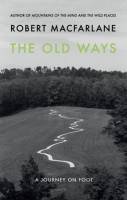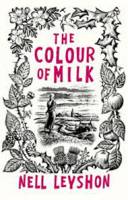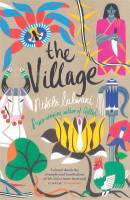Wherever you are, I hope you’re enjoying the festive season. Now it’s time for my annual look back on my favourite reads of the year. I’m going to split 2011’s list in two: six books from this year, six published in previous years. The lists are in alphabetical order of author surname, and all links will take you to my reviews.
Without further ado, then, here are six of my favourite books that received their first UK publication in 2011:
Aimee Bender, The Particular Sadness of Lemon Cake
I love fantasy with structural elegance, and this book has it: it’s the tale of a girl who can taste the feelings of whoever made her food (and hence detects trouble in her family’s relationships); what I like most is that it works equally as well whether you read the protagonist’s ability literally or metaphorically.
Stuart Evers, Ten Stories About Smoking
Certainly the best-designed book I read in 2011 (it comes in a flip-top box made to resemble a packet of cigarettes, this is also a fine set of stories which use smoking as a metaphor in various ways; I look forward eagerly to Evers’ debut novel next year.
Helen Oyeyemi, Mr Fox
Variations on the tale of Bluebeard, embedded in the broader narrative of a writer and his muse, who is rather less imaginary than she appears. The sheer range of Mr Fox is impressive, but it’s a great read to boot.
Nat Segnit, Pub Walks in Underhill Country
The idea of a novel written as a ramblers’ guide might seem gimmicky, but what makes this book work is the way Segnit uses the structure as a means of characterisation: the protagonist’s wife has left him, and the walking-guide format is set against a more novelistic style as the narrator tries to keep a hold on his world.
Conrad Williams, Loss of Separation
A fascinating psychological portrait of a pilot who’s recovered from an air crash, only to find that his girlfriend has disappeared. Williams brilliantly plays creeping personal fears of decline and loss against grander horrors, and asks which is truly the most frightening.
Naomi Wood, The Godless Boys
A superb portrait of a divergent England ruled by the Church, where members of the Secular Movement have been exiled to a nearby island. Wood creates a vivid sense of place and character, and a subtle sense of how isolation has changed the Islanders’ ideas about faith.
***
And now half a dozen from previous years:
Chris Beckett, The Holy Machine
A translator in the world’s only atheist city-state falls in love with one of the city’s lifelike robots; when a new law raises the possibility that the android’s personality will be erased, the pair are forced to flee. Becektt’s complex examination of science, religion, and what it means to be human makes an interesting comparison with The Godless Boys, which I read in tandem with this.
Joe Moran, On Roads: a Hidden History
A wide-ranging and perceptive history of the British post-war road system. If that sounds dry, I can only emphasise that it’s quite the opposite, as Moran spins gold from such an everyday topic.
Sarah Salway, Leading the Dance
Another book which turns the ordinary into something more, this time in the form of short stories which reveal the significance of ostensibly mundane events to the people involved in them.
Robert Shearman, Love Songs for the Shy and Cynical
The single best book of short stories I read in 2011. Shearman combines the unremarkable and the fantastic to brilliant effect in a collection whose main subject is love, seen from various angles.
Rebecca Skloot, The Immortal Life of Henrietta Lacks
The story of how cancer cells taken from a poor African American woman played a vital part in modern medicine, though for twenty years her family didn’t even know a sample had been taken. Though this is a fascinating tale in its own right, Skloot’s orchestration of her material makes it all the more so.
Mike Thomas, Pocket Notebook
I didn’t know what to expect from this story of a police officer going off the rails, and it utterly blew me away. One of the best written books I’ve read all year, one of the sharpest character-portraits… I can’t wait to see what Thomas writes next.
***
So that’s my dozen picks from the reading year. What books have you most enjoyed?
Like this:
Like Loading...











 Nat Segnit frames his debut novel as a walking guide by one Graham Underhill, a guide notable for the extent to which its fictional author’s personal life intrudes on the text. In the very first chapter/ramble, we learn how Underhill met his second wife, Sunita Bhattacahrya – fifteen years his junior – at Malvern Library, where he gallantly offered to pay her overdue fines; and so it continues. As the novel progresses, we discover under just how much strain the couple’s marriage was – not that Graham seemed to notice – until eventually Sunita goes missing, and the rambler turns searcher, setting out to look for her.
Nat Segnit frames his debut novel as a walking guide by one Graham Underhill, a guide notable for the extent to which its fictional author’s personal life intrudes on the text. In the very first chapter/ramble, we learn how Underhill met his second wife, Sunita Bhattacahrya – fifteen years his junior – at Malvern Library, where he gallantly offered to pay her overdue fines; and so it continues. As the novel progresses, we discover under just how much strain the couple’s marriage was – not that Graham seemed to notice – until eventually Sunita goes missing, and the rambler turns searcher, setting out to look for her.
Recent Comments